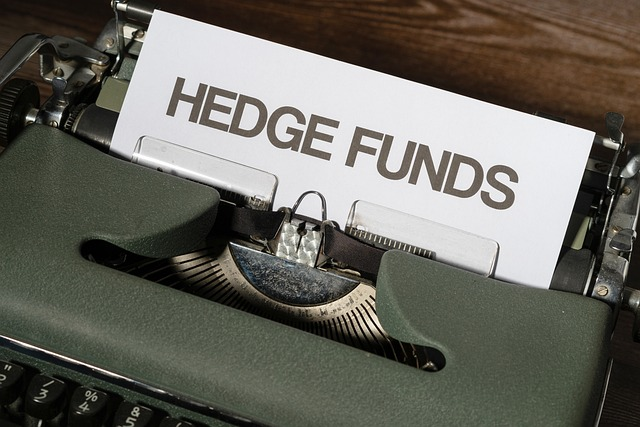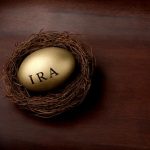What Are Tax Liens
Before we dive into the benefits of other liens and investing in tax liens, it’s important to understand why mortgage liens are what they are. A tax lien is a legal claim placed on tax deed investing a property by a government agency, typically a county or municipality when the owner of the property fails to pay their property taxes. The lien gives the property owner pays the government agency the right to collect the delinquent property taxes, along with any penalties and interest, from the property owner.
In some states, tax liens are sold to investors through public auctions. The investor can purchase tax liens, pays the delinquent property taxes on the purchase of these liens on the property and becomes the legal holder of this tax lien certificate. The investor then has the right to collect the delinquent property taxes and buy a tax lien, along with any penalties and interest, from the property owner. If the property owner fails to pay the delinquent property taxes, the investor can foreclose on the tax lien auction of the property, and the tax lien certificates become the owner.
The wise young man or wage earner of today invests his money in real estate.
Andrew Carnegie
What Is Tax Lien Investing

Tax lien investing is a type of investment where investors purchase a legal claim on the assets of individuals or businesses that have failed to pay their taxes.
The government issues a tax lien against these assets, which can be exchanged and traded among private investors. Investors bid on the interest rate on the lien or bid up a premium they will pay for it.
By purchasing a tax lien certificate, an investor is repaid with an agreed-upon interest rate when the property owner wants to redeem the debt.
Tax lien investing in the real estate market can be a lucrative investment option but carries substantial risks, including little control, potential legal and financial risks, and lack of liquidity.
Benefits of Investing in Tax Liens
High-interest interest rate, and return: One of the primary benefits of tax lien investing is the potential for a high-interest rate and return. Tax lien investing can offer returns of up to 18-24%, far higher than the returns offered by traditional investment options like stocks and bonds. This is because a tax lien is considered a distressed debt investment, and the high-interest rates are intended to compensate investors for the risk involved.

Diversify your portfolio:
Investing in tax liens can also help you diversify your investment portfolio. If you’re primarily invested in stocks and bonds, adding tax liens to your portfolio can help reduce your overall investment risk. Tax liens are not correlated with the stock market, meaning they can provide a hedge against market volatility.
Low investment risk:
Another benefit of real estate investing in tax liens is the low investment risk compared to other forms of investment. When you invest in tax liens, you’re essentially investing in guaranteed government debt. If the property owner fails to pay the delinquent real estate taxes, you have the right to foreclose on the property and become the owner. This means that even if the property owner defaults, you still have a tangible asset that can potentially be sold to recoup your investment.
Passive income stream:
Tax lien investing can also offer a passive income stream. Once you purchase a property tax lien investing works out against a due a property tax bill, tax lien investing requires you, the property owner is responsible for paying you the delinquent property taxes, along with any penalties and interest. This means that you don’t have to actively manage your passive investment either, making tax lien investing a great option for those looking for a passive income stream.
An effective way to acquire property:
Tax lien auctions Finally, tax lien auction investing can be an effective way to acquire property. If the property owner fails to pay the delinquent real estate taxes and you foreclose or buy tax liens out on the property, you become the real estate as legal owner and pay property taxes. This means that you an institutional investor can potentially acquire a valuable property at a significant discount
How to Invest in Tax Liens

Now that you understand about tax lien investing pros the benefits of tax lien investing, let’s take a look at how to invest in tax liens:
Research the local laws and regulations regarding tax liens:
Tax bill and lien laws vary by state, so it’s important to research the laws and regulations regarding tax bill and mortgage lien, in your state before investing. Make sure you understand the process for tax bill and lien investing:
Identify the properties with delinquent taxes:
Once you understand the laws and regulations, the next step in the foreclosure process is to identify the properties with delinquent taxes. You can typically find this information on the county or municipality website, or through a third-party provider.
Attend tax lien sales and auctions or purchase online:
In some states, the tax deeds and liens are sold through public auctions. You can attend these auctions in person or bid on other’ property tax liens online. In other states, tax liens can be a tax deed auction or purchased directly from the county or municipality.
Conduct thorough due diligence before investing:
Before investing in a tax lien, it’s important to conduct thorough due diligence. This includes researching the property and the property or previous owner’s credit report, checking for any outstanding liens or mortgages, and assessing the tax lien investing involves property’s market value.
Getting Paid On Delinquent Property Taxes
Getting paid on delinquent property real estate taxes can be a profitable business for investors. When homeowners fail to pay their property home taxes, the local government may place a tax lien on the property, which can then be auctioned off to investors.
Investors who purchase tax lien certificates are essentially paying the outstanding taxes on behalf of the property owner, and in exchange, they receive a certificate that entitles them to collect the unpaid property real estate taxes plus interest from the property owner.
If the real estate homeowner fails to pay within a certain timeframe, the investor may be able to foreclose on the property and become its new owner.
What Are Tax Lien Certificates

Tax lien certificates are legal documents that are issued by a county or municipal government to a third-party investor as a result of unpaid property taxes.
When homeowners do not pay their property taxes, the local government may place a lien on the property.
To recover the unpaid taxes, the government may then the foreclosure process or auction off the delinquent tax lien or certificates to investors or local governments, who in turn pay the outstanding taxes on behalf of the homeowner.
In exchange for paying the taxes owed, the investor receives a tax lien certificate, which entitles them to collect the unpaid taxes plus interest from the homeowner.
The maximum interest rate also varies by state and can range from 0% to over 20% per year. If the homeowner does not pay the national tax lien association or certificate holder within a certain timeframe, the other national tax lien association or lien holder investing requires the bill on holder may be able to foreclose on the property and become its new owner.
Tax lien certificates can be a potentially profitable investment for those who are willing to do their due diligence and carefully research the properties they are considering investing in.
However, they also come with risks, such as the possibility of the homeowner paying off the lien before the investor can foreclose, or the possibility of the property being in poor condition and not worth the investment.
It is important for investors to thoroughly understand the risks and rewards before investing in tax lien certificates.
Tips to Minimize Risk

While tax lien real estate and investing in real estate offers many benefits, it’s important to understand that there are also risks involved. Here are some tips to help you minimize your risk when your investing in real estate with tax liens:
The best investment on earth is earth.
Louis Glickman
Learn to spot red flags when researching:
Property tax liens here: Red flags can include things like properties with environmental issues, properties in flood zones, or properties with significant structural damage. Learning to spot these red flags can help you avoid investing in properties that may not be worth the risk.
Set a budget for your investments:
It’s important to set a budget for your tax lien investments and stick to it. This same investment advice can help you avoid overextending yourself and taking on too much risk.
Diversify your tax lien portfolio:
As with any investment strategy, it’s important to diversify your tax lien investing portfolio. Investing in multiple tax liens can help reduce your overall investment risk.
Consider investing in tax-lien mutual funds or ETFs:
If you’re not comfortable investing in tax liens directly, you can also consider investing in tax lien mutual funds or buying tax liens through tax levy put-only ETFs. These funds pool investor money and institutional investors to invest in a diversified portfolio of tax liens.
Due Diligence is still necessary:
Investing in tax liens can be a lucrative investment option that offers a high rate of return, diversifies your portfolio, and provides a passive income stream. However, it’s important to understand the risks involved and conduct proper due diligence before investing in buying tax liens.
How Hedge Funds and Institutional Investors Invest In Tax Liens

Hedge funds and institutional investors may invest in tax liens through specialized funds or investment vehicles.
These funds typically purchase large portfolios of tax liens across multiple states or jurisdictions, spreading their risk across a diverse range of properties.
They may also hire experienced professionals to conduct due diligence on the properties they are considering investing in, in order to minimize their risk and ensure they are making sound investment decisions.
Additionally, hedge funds and institutional investors may have the resources to bid on tax liens at auction more aggressively than individual investors, giving them an advantage in acquiring tax liens that offer the best returns.
Overall, tax lien investing can be an attractive option for hedge funds and institutional investors seeking to diversify their portfolios and generate above-average returns.
Tax Lien Investing vs Traditional Real Estate Investing

Tax lien investing and traditional real estate investing are two very different approaches to investing in real estate.
Traditional real estate investing involves purchasing a property with the intention of generating income through renting or selling the property at a profit.
Tax lien investing, on the other hand, involves investing in the unpaid property taxes of a homeowner, with the goal of earning interest and potentially acquiring the property through foreclosure if the owner does not pay the property tax debt amount back.
One of the main differences between the two approaches is the level of involvement required.
Traditional real estate investing typically requires a more hands-on approach, such as managing the property, dealing with tenants, and maintaining the property.
Tax lien investing, on the other hand, is more passive and involves waiting for the homeowner to pay the outstanding taxes or foreclosing on the property.
Another difference is the level of risk involved. Traditional real estate investing can involve significant financial risk, as the value of the property can fluctuate based on market conditions, and it may take time to find a buyer or tenant.
Tax lien investing, while less risky in terms of initial investment, can still carry risks such as the homeowner paying off the lien before the investor can foreclose or the property being in poor condition.










